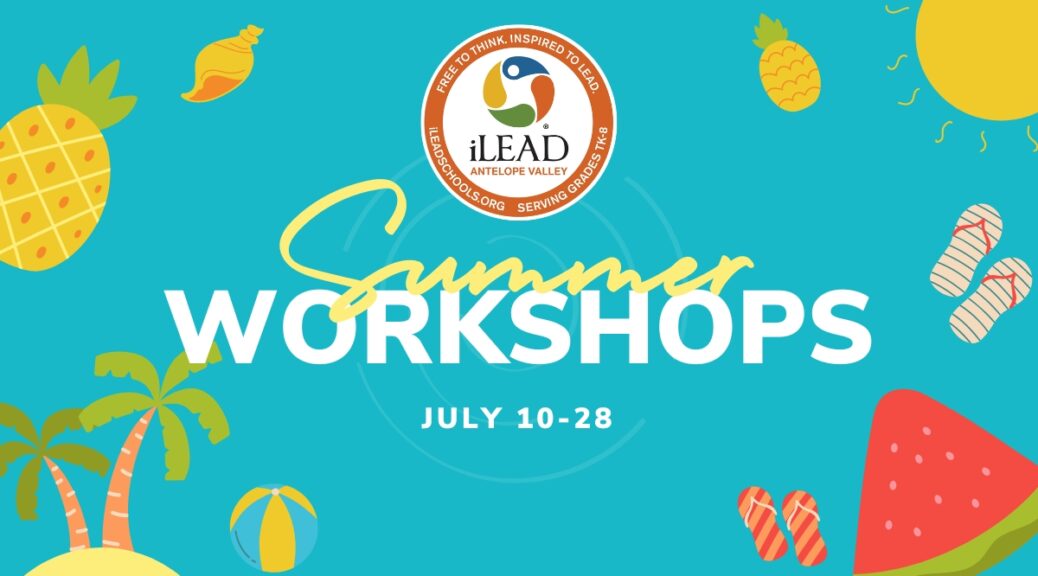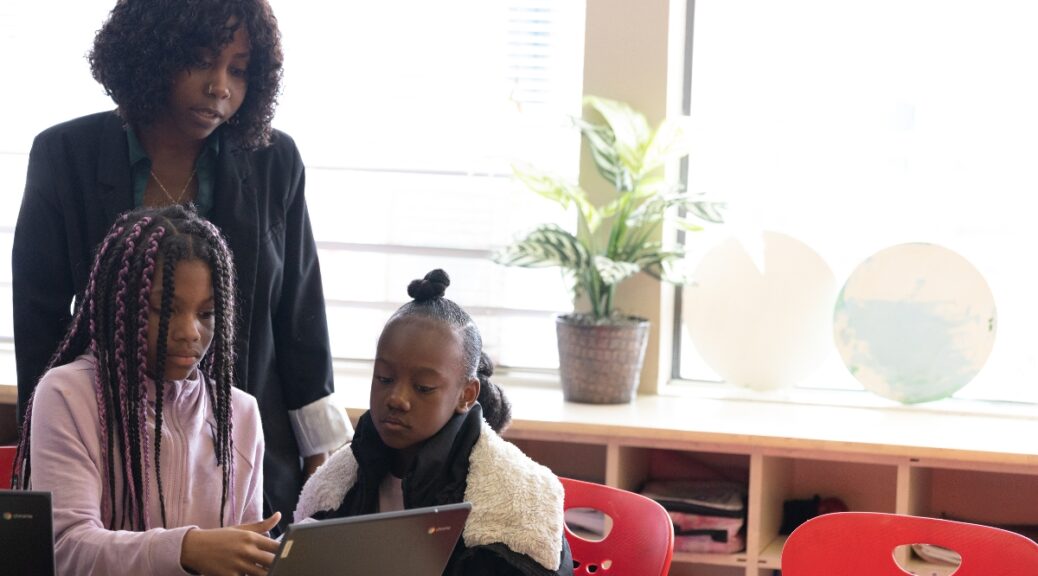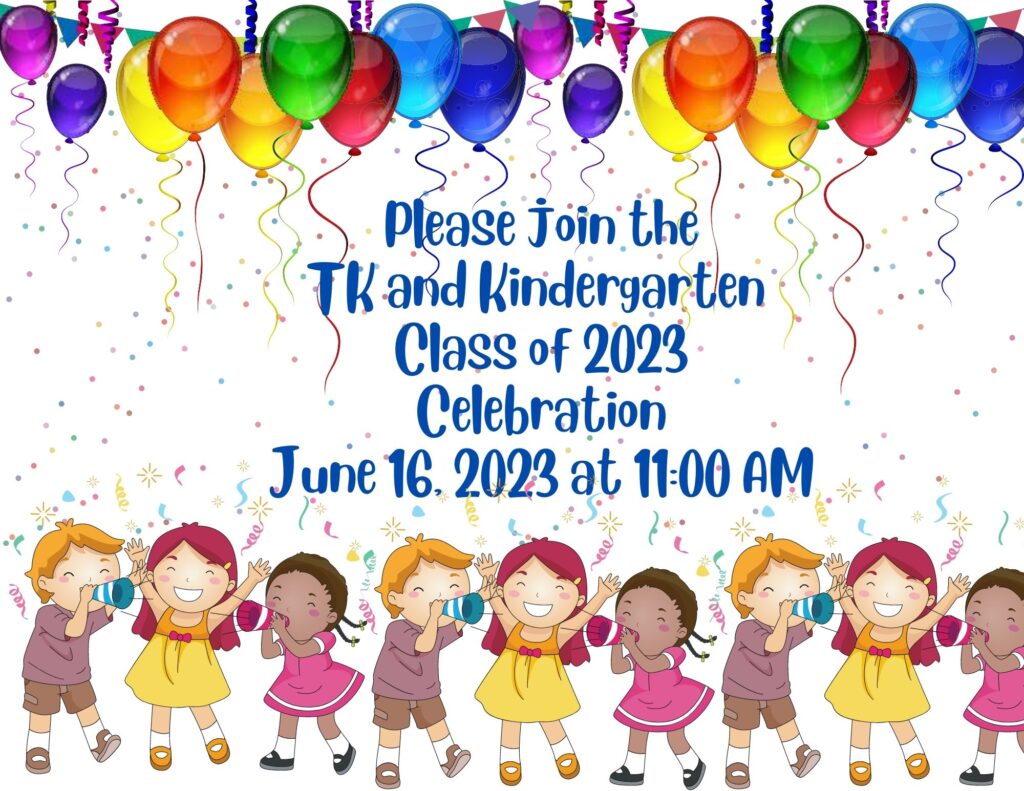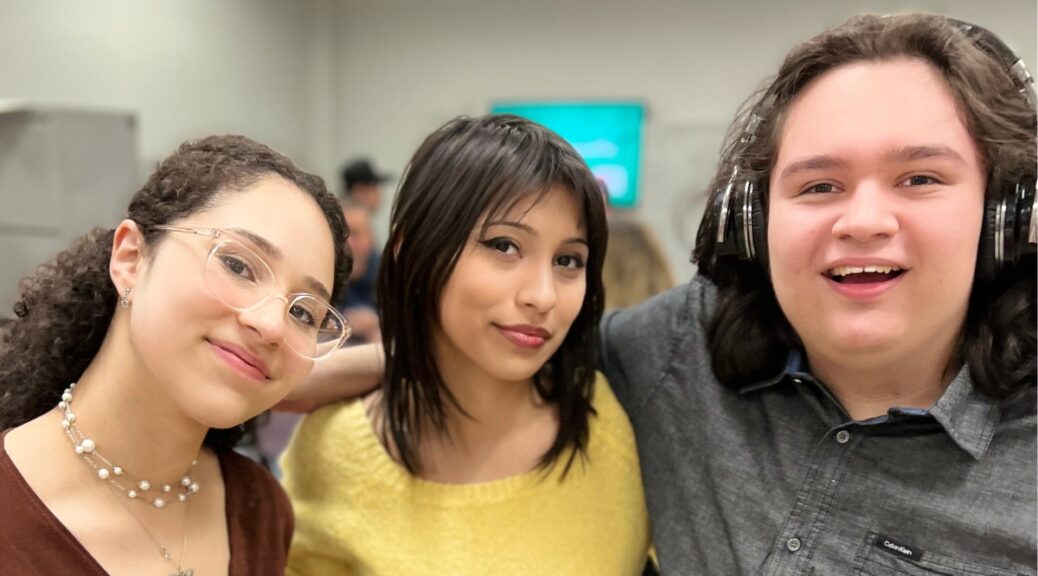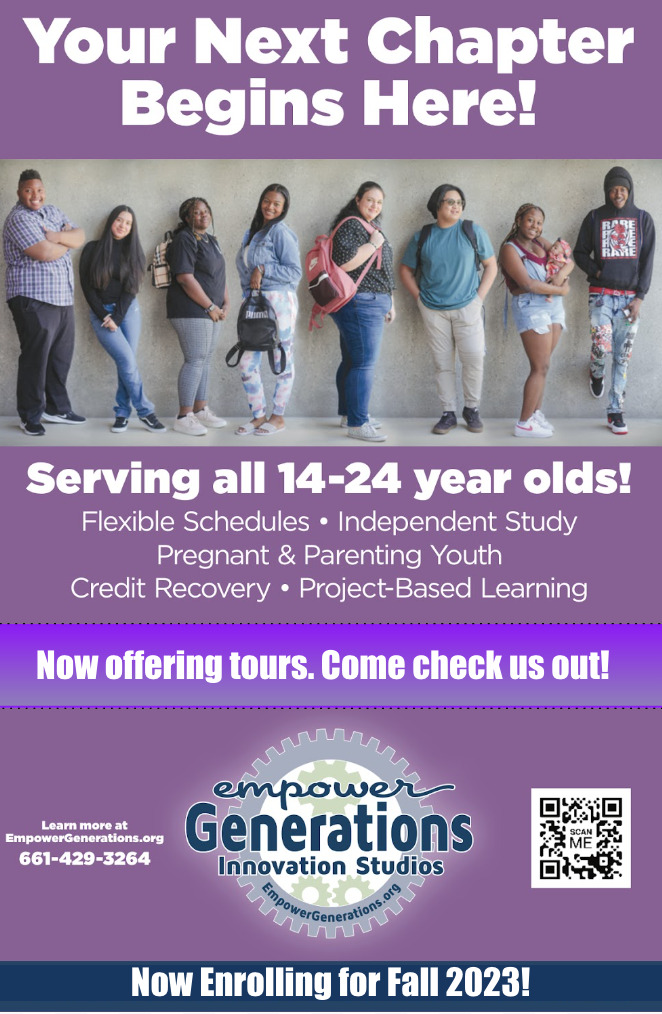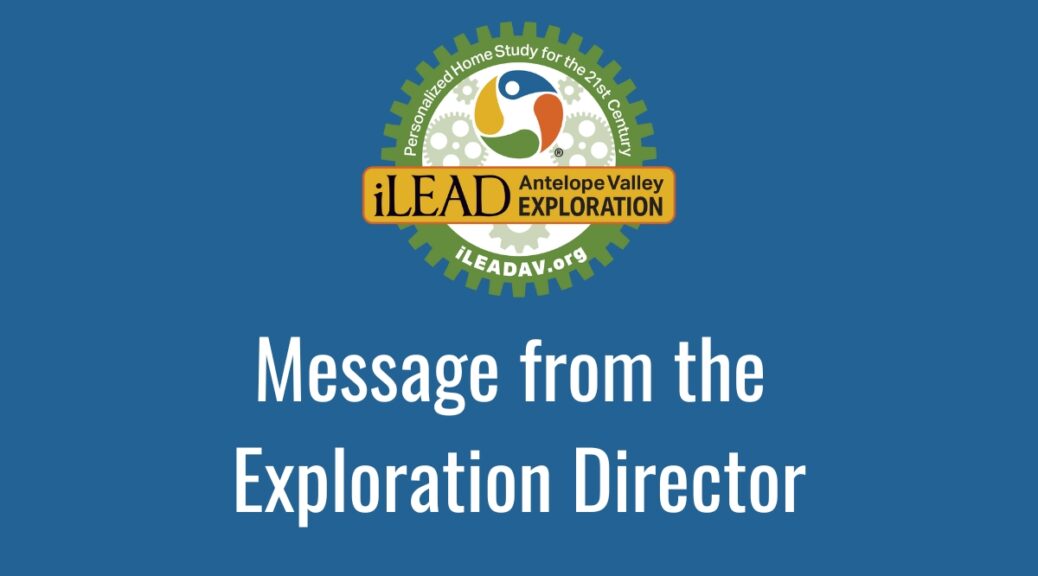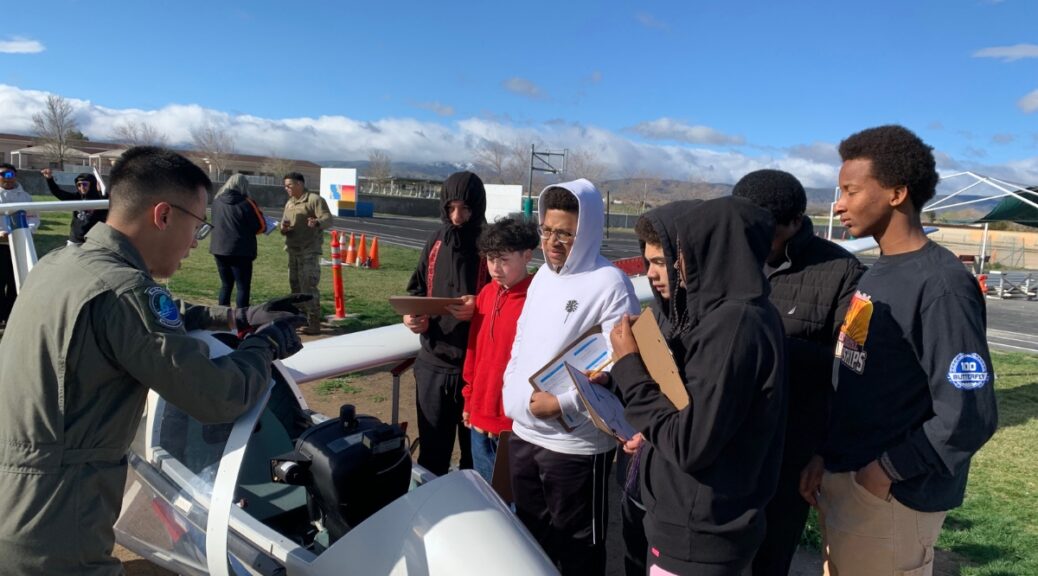We are pleased to announce that iLEAD Antelope Valley will be offering summer workshops July 10-28 from 9:00 AM to 12:30 PM Monday through Friday. Please complete this form by Thursday, June 15, for each learner you wish to enroll.
Tag Archives: Antelope Valley Charter School
iLEAD AV Backyard Bash: June 13
Return Borrowed Laptops: June 12-16
iLEAD AV Studio families, please start returning borrowed laptops to the front office on Monday, June 12. All laptops must be returned by June 16. Thank you!
Sites Serving Summer Meals
We want to make sure your family has access to meals throughout the summer. If you need assistance in finding food for your family, please call 1-866-3-HUNGRY or 1-877-8-HAMBRE, or visit www.whyhunger.org/find-food.
8th Grade Celebration: June 16
TK/Kindergarten Celebration: June 16
Upcoming Events
Mon.-Fri., 6/12-16: Return laptops to front office
Tue., 6/13: Backyard Bash, 5-7 PM
Fri., 6/16: 8th Grade Celebration, 9:30 AM
Fri., 6/16: TK/Kindergarten Celebration, 11 AM
Thur., 6/15: Learners’ last day on campus
Fri., 6/16: Last day of 2022-23 school year
Mon., 7/10 – Fri., 7/28: Summer Workshops
Click here for the school year calendar.
A Note from Empower Generations to Our 8th Grade Families
A message from the team at Empower Generations:
Calling All iLEAD 8th Graders and Families!
It’s time to think about high school registration for 2023-2024!
Your next chapter begins here with us at Empower Generations!
We are now enrolling for next school year and would love to be part of your learner’s high school experience.
We are a tuition-free charter high school with flexible schedules and an independent study program.
If you have any questions, or if you want to come in for a tour, please email Roselia Calderon, call us at 661-429-3264, or fill out our Intent to Enroll.
Message from the iLEAD AV Exploration Director
Dear iLEAD AV Exploration Families,
This is such an exciting week! We have our Open House on Wednesday, June 7, from 4:30-6:30 PM. Then Thursday, June 8, is our Kindergarten Promotion at 10 AM and our 8th Grade Promotion at 11:30 AM. We cannot wait to celebrate with you!
Your EF has sent a sign-up sheet for curriculum returns. Please sign up for June 12, 14, or 16 on the document.
Have a wonderful week!
With gratitude,
Terri Budke
Director of North LA County Exploration
2023-24 Enrollment!
We still have a few spots available for new learners for the 2023-24 school year. Do you know anyone who would benefit from our program next year? Please invite them to come check us out on Wednesday at our Open House! Let them know we are offering tours on some Tuesdays at 10 AM. They may register here to attend.
Open House Celebration!
We will hold an Open House on June 7 from 4:30-6:30 PM. Please bring your whole family and any families and friends! We are planning lots of fun things for everyone. We will have hot dogs, Kona Ice (for purchase), crafts, water games, eight vendors from our vendor list, and more!
We are asking for donations of single-sized chips and water bottles. If you can supply some, please bring them to our classroom on a Wednesday between 8:30 AM and 4:30 PM, and AdrieAnna will assist you.
Kindergarten and Eighth Grade Promotions!
Mark your calendars for our K and 8th grade promotions! You won’t want to miss this special event on Thursday, June 8, in our classroom.
- Kindergarten: 10:00-11:00 AM
- 8th Grade: 11:30 AM-12:30 PM
Curriculum Return Week
Curriculum return week will be held the week of June 12. Your EF sent a sign-up sheet via email. Please select a time and date that you will return all your curriculum. Please return all items. A partly used workbook is still good to have on hand in case a child enrolls late or we need some work for workshop time. If you are returning to iLEAD AV Exploration next school year, you can hold on to your Chromebook and math manipulatives. If you are not returning, be sure to return those items as well as your books. Don’t forget the charger for the Chromebook. Thanks!
Re-Enrollment Paperwork
Re-enrollment paperwork needs to be completed ASAP through Reg-Online. If you need assistance, please call our office at 661-494-7442 and set up an appointment with AdrieAnna. She will be happy to assist you over the phone or in person.
California Science Center Invitation: June 6 or June 10
California Science Center is looking for families with 9-13-year-old children to come spend one hour there on June 6 or June 10. They’ll provide complimentary parking, a $20 gift card, and general admission to their exhibits as a thank-you for participating. Interested families can sign up using the link on this flyer.
Upcoming Events
Wed., 6/7: Open House, 4:30-6:30 PM
Thur., 6/8: Kindergarten Promotion, 10 – 11 AM
Thur., 6/8: 8th Grade Promotion, 11:30 AM-12:30 PM
Mon., 6/12: LP Week
Mon.-Fri., 6/12-16: Curriculum Return Week
Fri., 6/16: Last Day of 2022-23 School Year – Learning Logs Signed
iLEAD AV Glider on Campus Event: Watch the Video!
On March 23, 2023, iLEAD Antelope Valley Studio hosted their annual Glider on Campus Event as part of their Soaring Aeronautics Project through iLEAD Student Aerospace Projects. Special thanks to Edwards Air Force STEM for guiding and inspiring the learners!


